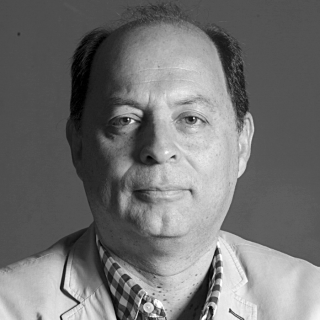
Assassination in Haiti: Controversy as Colombian government seeks lawyers to defend mercenaries
Eighteen Colombian ex-military personnel are in prison, accused of participating in the July 7 armed action during which President Jovenel Moïse was…
Opposition sectors and analysts have questioned the actions of the Colombian government after the assassination of Jovenel Moïse, president of Haiti, for which 18 Colombian mercenaries are detained.
Once the involvement of former Colombian military personnel in the assassination was discovered, media close to President Iván Duque made public a version of events, supported by the Government, which painted it as deception from those who supposedly hired them for the opposite: to support the Moïse's safety.
For the Colombian analyst Aurelio Suárez, consulted by AL DÍA, “the Government has to take advantage of the investigations and cannot say that there was deception. That was defeated long ago. Those who are going to give a trial are the Haitian authorities, and Colombia has to submit to that and respect it. If they are defeated at trial, there is nothing else to do but guarantee due process."
He even said that “it would be a unique precedent in Colombia, which has always complied with the rulings abroad. If Colombia hesitates in that, it may enter a kind of zone of questioning its legitimacy at the international level.”
In the meetings prior to Moïse's assassination, according to what is known, a Venezuelan and Colombian citizen participated, who loaned their company's offices in Florida, and contacted and paid for the ex-military members' trip to Port-au-Prince. This is Colombian businessman, Arcángel Pretel, a security expert who is also known as Gabriel Pérez, and partner of Venezuelan Antonio Intriago at the company, CTU, in Florida.
In this regard, Senator Iván Cepeda, a member of the Democratic Pole and an opponent of the government, told AL DÍA that “it is the responsibility of the Colombian authorities to investigate the relationship between these mercenaries and the companies that hired them in Miami. These companies appear to have had business in Colombia and, of course, it is a duty to contribute to the investigation.
For his part, Suárez states that “the events in Haiti are a shame for Colombia, and for any country, that the military or ex-military, including middle-ranking officers, participate in an act of mercenarism to go and kill a president of a foreign country. Colombia has to accept that as a national shame and an execrable act.”
What drew attention in recent weeks was the decision of the Colombian Ombudsman's Office to send a delegation to Haiti to verify the conditions of the 18 Colombians and the subsequent decision of the Government to seek lawyers to take charge of their defense.
At the time, Colombian Vice President and Foreign Minister Marta Lucía Ramírez said that "any detainee in the world must have the right to defense and due process" and stated the Government is "very concerned" about the lack of lawyers to the mercenaries.
RELATED CONTENT
"We are looking at the possibility of finding an international lawyer, including a Colombian one, who knows Haitian law and who can at least have the support of a Haitian lawyer, if we do not find any Haitian lawyer willing to defend them," said the high official, who was criticized by the opposition.
In this sense, Senator Iván Cepeda considered "there is an impact on the symmetry between the efforts that exist to guarantee the rights of these people, but also the absence of explanations about the true origins of this operation."
In addition, he was surprised by “this feverish activity around the defense of those people involved in mercenary operations, but at the same time the government's indolence to produce explanations about what has happened. Also to formally request forgiveness from the Haitian people for which our government is politically responsible for allowing people who were from the Army to participate in an operation of this nature."
The analyst Aurelio Suárez warned that “as Colombian citizens, they have the right to the assistance that the country gives them. The strange thing here is that it is only for them and there is no assistance to many other Colombians who, for different reasons, even minors, in the world are detained without legal assistance and totally helpless.”
According to the Colombian Foreign Ministry, as of Sept. 1, there were 121,827 Colombians detained abroad for different reasons. Of these, 29,439 are for drug trafficking, 15,527 for theft and 9,421 for homicide. There are 52,553 detainees, 44,378 under investigation, 17,067 on trial. In Venezuela, there are 17,618 Colombians detained; in the United States, 15,674, and in Spain, 13,696. All three are the countries with the most Colombians in their prisons.
A little less than a month ago, after a meeting with the Haitian ambassador in Bogotá, Lucía Ramírez said “there cannot be impunity” and that “we will not allow the international image of Colombia to be linked to a land of mercenaries."
Suárez indicated that “Colombia is not a country of mercenaries, but it is a country that exports mercenaries. For example, it is known that those who traveled to the United Arab Emirates a few years ago ended up involved as private armed forces in the war against the Yemenis.
In the case of the mercenaries in Haiti, all eyes are on the Colombian government to see what its next move will be.











LEAVE A COMMENT:
Join the discussion! Leave a comment.